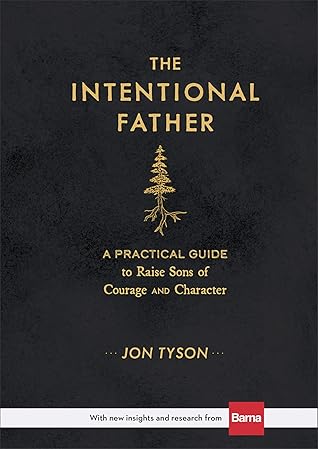More on this book
Community
Kindle Notes & Highlights
by
Jon Tyson
based on my Barna team’s research, I contend that our society is facing a crisis of raising boys into men of character and consequence—that is, young men who live with integrity and make a positive impact with their lives.
I’ve met thousands of fathers, but only a handful of these have made it a primary ambition to be an intentional presence in the lives of their children and are willing to go on the record to say so. Imagine if the volume of fathers intending to be intentional was turned way up, aiming at nothing less than getting it right: we’d be miles ahead in solving this dilemma.
The role of fatherhood is one of the most overlooked yet crucial roles in our society. The data and our own experience could not be clearer. When a father is present, emotionally healthy, and involved in his child’s life, the child has a tremendous advantage in the world to navigate its complexities and challenges with joy and confidence.
This concept of “raising” a child comes to us from a rather intense tradition rooted in Roman culture. Children were presented before the head of the household, and if the father wanted the child, he would lift the baby up in his arms and hold him or her skyward—literally raising the child—and this meant the baby was welcomed into the home. If the man didn’t want the child, he would not raise him or her but would look away and leave the baby there on the ground, and then the child was put out for what they called “exposure.”
Children without fathers: are four times more likely to live in poverty. are more likely to suffer emotional and behavioral problems. have higher levels of aggressive behavior than children born into married homes. have two times the risk of infant mortality. are more likely to go to prison. Only one in five prison inmates grew up with their father present. are twice as likely to be involved in early sexual activity.
a man is an image bearer and son of God entrusted with power and the responsibility to create, cultivate, care, and defend, for God’s glory and the good of others.
We need to have a vision of the day our sons will leave our homes and work backward from that day with a plan to help them gain the knowledge, skills, character, and experiences they need. This will enable them to move into the world as confident and healthy men.
“Wounded?” was all I could manage. “Yes,” said Pat. “And you’re wounded in the same place. That’s what fathers do if they don’t heal their wounds. They wound their children in the same place.”
Hey, Dad, at this point in your life, now that I’m a man and raising my own son, you’re probably wondering what I think of you. You’re probably looking back over your role as a father with moments of pride and moments of regret. And I just wanted to let you know, here are some of the things you got right. Thank you for these things.
Across time and place, cultures have inherently understood that without clear markers on the journey to manhood, males have a difficult time making the transition and can drift along indefinitely. Thus, rites of passage were clearly delineated in nearly every culture as one of the community’s most important rituals. BRETT MCKAY


